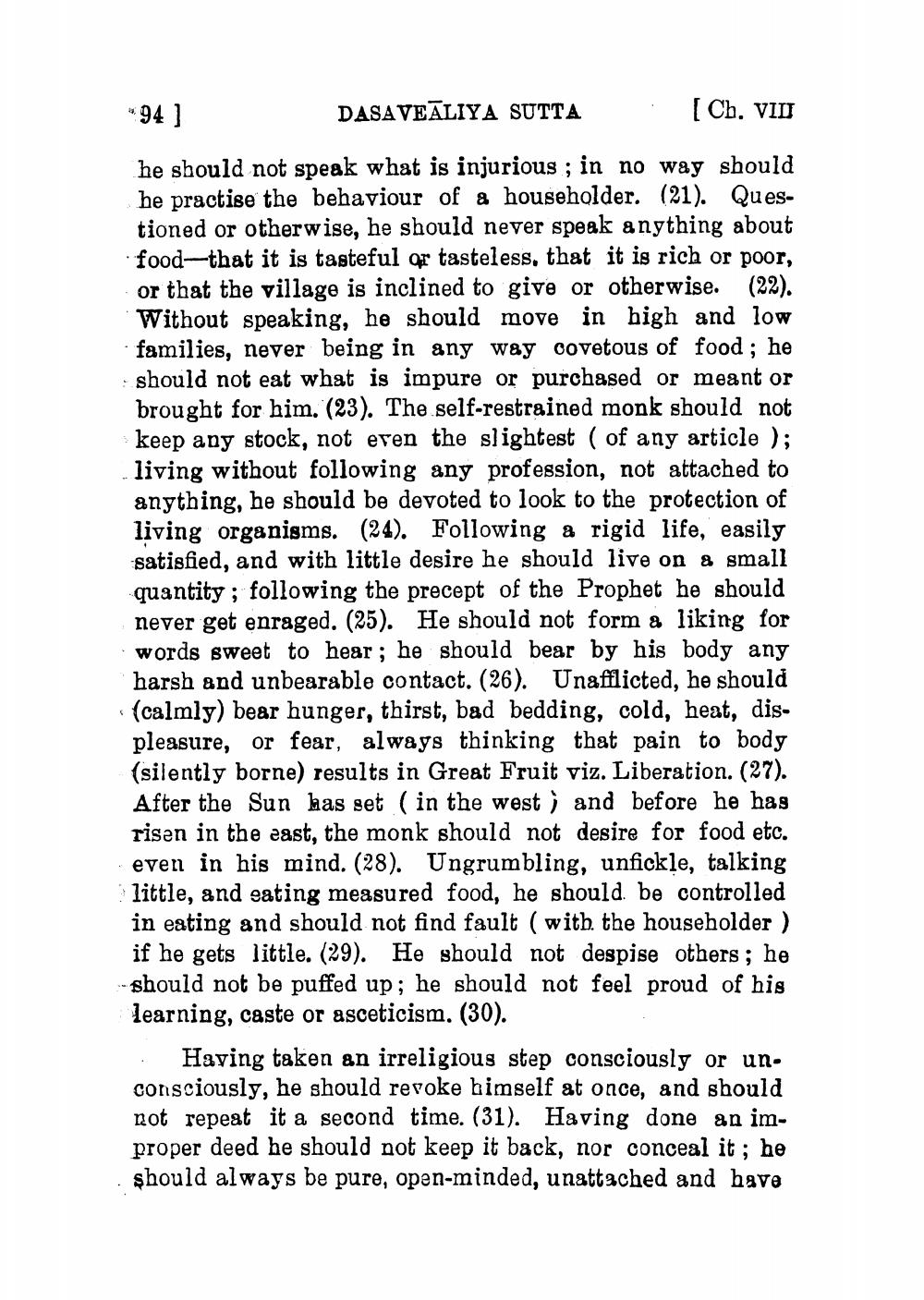________________
* 94 ]
DASAVEĀLIYA SUTTA. : [ Ch. VII he should not speak what is injurious ; in no way should he practise the behaviour of a householder. (21). Questioned or otherwise, he should never speak anything about food that it is tasteful or tasteless, that it is rich or poor, or that the village is inclined to give or otherwise. (22). Without speaking, he should move in high and low families, never being in any way covetous of food ; he should not eat what is impure or purchased or meant or brought for him. (23). The self-restrained monk should not keep any stock, not even the slightest (of any article ); living without following any profession, not attached to anything, he should be devoted to look to the protection of living organisms. (24). Following a rigid life, easily satisfied, and with little desire he should live on a small quantity ; following the precept of the Prophet he should never get enraged. (25). He should not form å liking for words sweet to hear; he should bear by his body any harsh and unbearable contact. (26). Unafflicted, he should (calmly) bear hunger, thirst, bad bedding, cold, heat, displeasure, or fear, always thinking that pain to body (silently borne) results in Great Fruit viz. Liberation. (27). After the Sun has set (in the west, and before he has risen in the east, the monk should not desire for food etc. even in his mind. (28). Ungrumbling, unfickle, talking little, and eating measured food, he should be controlled in eating and should not find fault ( with the householder ) if he gets little. (29). He should not despise others; he -should not be puffed up; he should not feel proud of his learning, caste or asceticism. (30). . Having taken an irreligious step consciously or un. consciously, he should revoke himself at once, and should not repeat it a second time. (31). Having done an improper deed he should not keep it back, nor conceal it ; he should always be pure, open-minded, unattached and have




